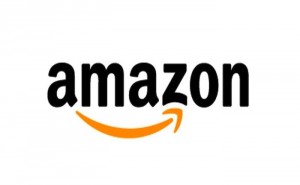The Amazon Advantage
Amazon has aggressively litigated its way to what amounts to a free pass on most IP infringement claims.
 Amazon is the Jeff Bezos-helmed corporate behemoth that began as a simple online book purveyor before morphing in a manner not unlike the titular entity from The Blob to consume the retail markets for everything from Listerine to lawnmowers. Nowadays, even the whispered utterance that Amazon is going to enter a new market segment is enough to send the valuation of others in that space careening off a cliff. Just ask the folks at Blue Apron.
Amazon is the Jeff Bezos-helmed corporate behemoth that began as a simple online book purveyor before morphing in a manner not unlike the titular entity from The Blob to consume the retail markets for everything from Listerine to lawnmowers. Nowadays, even the whispered utterance that Amazon is going to enter a new market segment is enough to send the valuation of others in that space careening off a cliff. Just ask the folks at Blue Apron.
Now, Amazon is poised to extend its tentacles into the fashion and creative industries with the launch of Amazon Fashion and its Prime Wardrobe program, which allow shoppers to test-wear garments for a week before buying. This news was not well-received by fashion retailers, who have already been battered by shifting consumer appetites. The mall favorites from your youth are closing up shop and laying off employees what seems like every other week. Farewell to thee, BCBG, The Limited, True Religion, and the rest, may you feast at the great Cinnabon in the sky for all eternity. The cause of this great retailer exodus is a complex soup of factors, but most everyone seems to agree that Amazon’s growth is a major ingredient.
Amazon has numerous advantages over other retail outlets – virtually no mall leases or brick-and-mortar store overhead, a sophisticated distribution center, Mozart in the Jungle episodes, and a built-in consumer base of Amazon Prime members. But another, less observed advantage is perhaps the most interesting: Amazon has aggressively litigated its way to what amounts to a free pass on most intellectual property infringement claims.

Early Adopters Of Legal AI Gaining Competitive Edge In Marketplace
Amazon has done so by deftly exploiting some gooey language in the Digital Millennium Copyright Act (“DMCA”). If you’re not familiar with this statute, it was promulgated in 1998 to update and “modernize” the graying Copyright Act. Advances in technology spurred the DMCA (and gave it its very nifty and on-brand name), which included certain protections for “online service providers,” as that term was understood back in the waning days of the grunge era.
You remember 1998, I’m sure. It was the year of the Clinton/Lewinsky pas de deux and the year that Google was born. It was the year in which the first mp3 player was released in Japan, Microsoft’s Windows 98 dominated desktops, and Gates & Co.’s Internet Explorer bypassed Netscape to become numero uno in the browser game. Online shopping was virtually non-existent, and three-year-old Amazon’s marketplace dominance was still a Bezos-ian eye glimmer. In 1998, “online service providers” comprised entities like American Online, Geocities, and web-based bulletin boards where you posted and read articles about Magic: The Gathering.
But, you would be amazed by what a company with billions of dollars and a bevy of high-priced lawyers can do with a nebulous phrase like “online service provider.” The actual language, found in Section 512(c) of the DMCA, creates a “safe harbor” from infringement liability for any “provider[s] of online services or network access[.]” Once qualified, such providers are not liable for monetary damages for the “storage” of infringing material at the direction of the user. This “safe harbor” piqued the interests of online businesses near and far, many of which had waded into intellectual property-rich waters without the benefit of a swimsuit.
The statute was drafted upon the desk of good intentions. If you were operating an online discussion forum for Pokemon enthusiasts in 1998, and one such enthusiast got a little overzealous with their fan fiction and uploaded a copyrighted photograph of Pikachu with a set of absolutely ripped abs to your forum, then you, the forum operator, were free from liability. This allowed online discourse to grow without much intrusion from the Copyright Act.
Sponsored

Early Adopters Of Legal AI Gaining Competitive Edge In Marketplace

The Business Case For AI At Your Law Firm


Is The Future Of Law Distributed? Lessons From The Tech Adoption Curve

Navigating Financial Success by Avoiding Common Pitfalls and Maximizing Firm Performance
And the Copyright Act is a straightforward statute in many respects. It says, in basic terms and subject to certain exceptions, that nobody should profit from the unauthorized use of a copyrighted work. So, if you are a retailer and you sell a knock-off or otherwise infringing item, you have to cough up (or, “disgorge” if you want to use the formal but also vaguely creepy legal term) those profits. Simple enough. The path by which Amazon was able to establish that its marketing, sales, and distribution of infringing product are immunized by this safe harbor is what’s complex.
Amazon saw opportunity in the DMCA: if it could establish that its sales of physical products could qualify under its protections, it wouldn’t have to worry much about infringement. It is unlikely that the DMCA was ever meant apply to the online sale of physical products given its focus on all things digital. There is nothing in the language to indicate that such sales should be covered, and, as we discussed, the online marketplace for physical goods was peopled only by lonesome pioneers back in 1998. Yet, with Amazon leading the way, courts have consistently expanded the definition of “online service provider” to the point where a court reviewing infringement claims against online custom-printing company Zazzle recently noted that it was “difficult to imagine any online service that the definition would not encompass.”
And virtually all of Amazon’s sales practices have been found to be so encompassed. The online juggernaut sells in one of three ways: Amazon markets, sells, and ships Amazon product; Amazon markets, sells, and ships third-party product; and Amazon markets and sells third-party product that the third-party ships. In each of these three circumstances, physical products are shipped and Amazon gets paid. Yet, Amazon has convinced the courts that the shipment of physical goods and payment for those goods is somehow akin to the uploading and storage of Pokemon photographs on a message board. In other words, it convinced the courts that its online and offline activities fall into the safe harbor for “online” services.
So, if Toys ‘R’ Us sells a knock-off Elmo doll and is caught, it would be liable for infringement and would have to disgorge the profits from the sales. If Amazon is caught selling that same doll, it likely has no monetary liability because it is an “online service provider.” And, as such a provider, it matters little whether Amazon was reckless or willfully blind in regard to the rights of the copyright holder.
This, though, was not the end of Amazon’s quest to establish that the DMCA provides shelter for its sales of infringing products. Given the near-absolute immunity offered by the statute, the company still had to execute a few more maneuvers to reach the promised land. We will explore how this was done, and how some courts are now pushing back, next week.
Sponsored

Legal AI: 3 Steps Law Firms Should Take Now

Navigating Financial Success by Avoiding Common Pitfalls and Maximizing Firm Performance
 Scott Alan Burroughs, Esq. practices with Doniger / Burroughs, an art law firm based in Venice, California. He represents artists and content creators of all stripes and writes and speaks regularly on copyright issues. He can be reached at scott@copyrightLA.com, and you can follow his law firm on Instagram: @veniceartlaw.
Scott Alan Burroughs, Esq. practices with Doniger / Burroughs, an art law firm based in Venice, California. He represents artists and content creators of all stripes and writes and speaks regularly on copyright issues. He can be reached at scott@copyrightLA.com, and you can follow his law firm on Instagram: @veniceartlaw.







